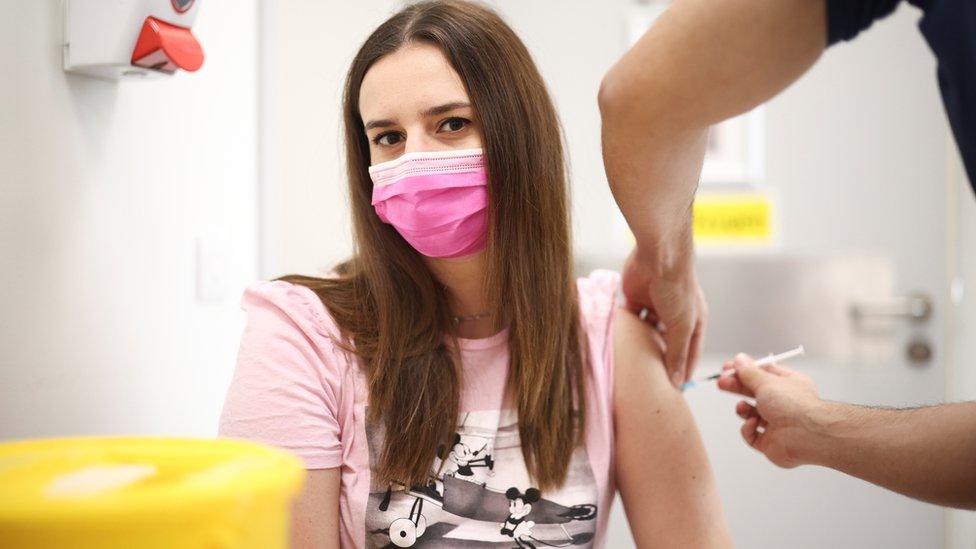Covid-19: More than half of UK adults have had second jab
- Published
- comments
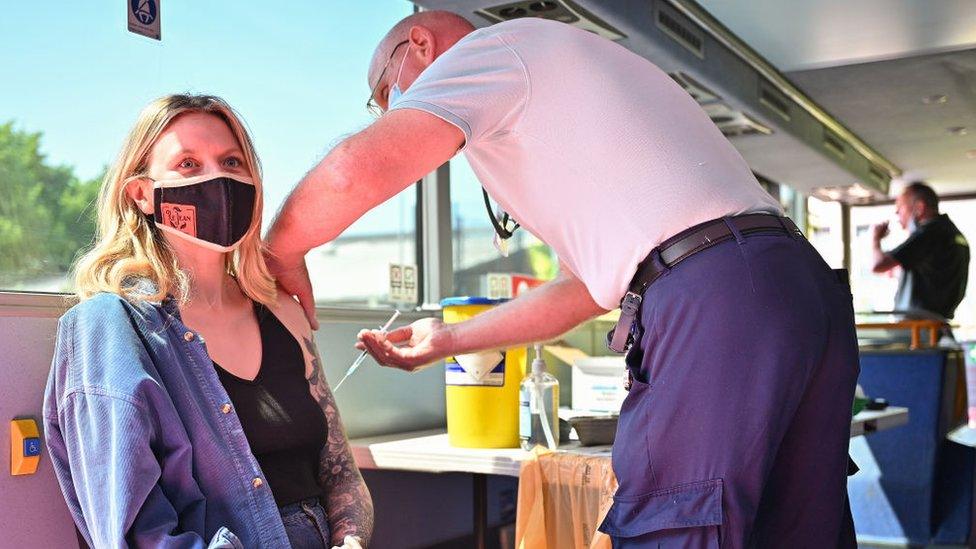
More than half of UK adults have now had both doses of a coronavirus vaccine, official figures show.
The prime minister, who had his own second jab on Thursday, welcomed the "amazing achievement", tweeting, external: "Now let's finish the job."
A total of 26,422,303 second doses have been given out since the vaccine rollout began nearly six months ago.
It comes a day after Health Secretary Matt Hancock confirmed three quarters of UK adults have had a first jab.
Three of the four vaccines approved for use in the UK require two doses for maximum protection against Covid-19.
Meanwhile, cases continue to rise in the UK with another 5,274 infections reported on Thursday, and another 18 deaths recorded within 28 days of a positive test.
Mr Hancock said he was delighted, external with the progress of the vaccine rollout, and thanked "everyone working together in our huge national effort".
And vaccines minister Nadhim Zahawi said the UK had hit "another important milestone".
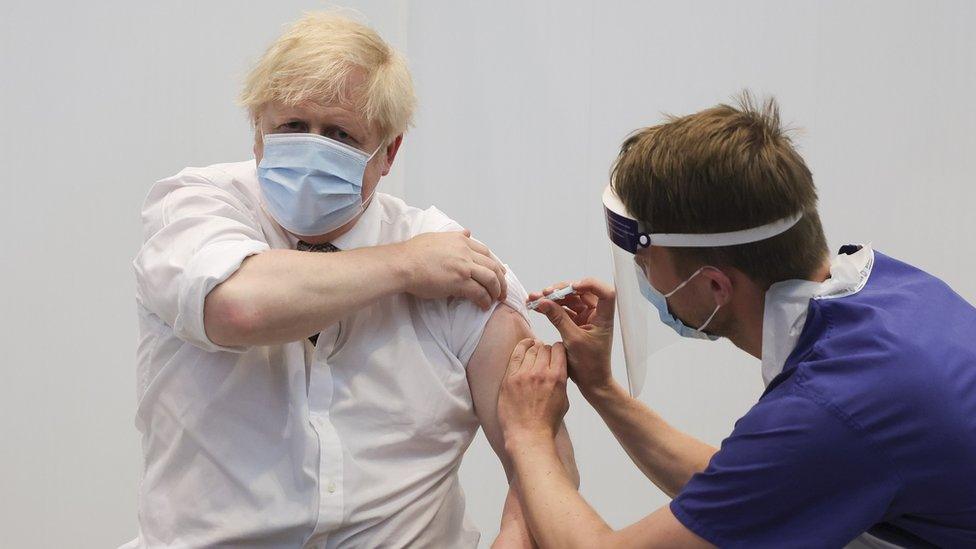
Boris Johnson had his second jab at the Francis Crick Vaccine Centre in central London
England is slightly ahead of the other three nations in giving out second doses, with 50.7% of adults (22,442,383 people) having had two jabs.
In Scotland, 48.2% have had their second jab (2,137,618 people), Northern Ireland is on 47.1% (684,398 people) and in Wales it's 45.9% (1,157,904 people). These latest figures come from the UK's four health agencies.
The government has promised to offer a first dose of a vaccine to all adults by the end of July, and both doses to everyone aged 50 and over by 21 June.

'No herd immunity yet'

Herd immunity needs a lot of people being able to fight off the virus.
Say every infected person would on average, in a fully unlocked society that hasn't seen the virus before, infect another six people.
If more than five out of every six people can fight off the virus - either because of vaccination or past infection - then the virus gets blocked and so the epidemic starts to shrink.
We're not there yet.
But herd immunity isn't all or nothing. Every person who is fully vaccinated makes it harder for the virus to spread.
So this is more great news about a successful vaccination programme that will hopefully keep us safer in the months to come.

Who can get a vaccine now?
In England, people aged 30 and over can book online, external or by calling 119
In Scotland, people aged 30 and over are being invited for a vaccine, external
In Wales vaccines to everyone aged 18 and over, external can get a vaccine
In Northern Ireland, people aged 18 and over can book online, external or call 0300 200 7813

The UK continues to be among those with the highest vaccination rates globally.
The number of first doses administered each day is now averaging about 170,000 - a drop from an average of about 500,000 in mid-March - as the schedule of second doses kicks in.
An average of more than 350,000 second doses are now being given a day.

On Wednesday, the health secretary confirmed the government was in talks with AstraZeneca to secure a future version of its jab which would be adapted to better tackle the Beta variant first identified in South Africa.
Any altered vaccine would need to be approved by the medicines regulator.
The variant of coronavirus first identified in India is now the dominant strain in the UK, Public Health England (PHE) has said.
The number of cases confirmed by laboratory analysis rose by 79% over the last week to 12,431.
Scientists believe the variant, now known as Delta, has overtaken the Kent, or Alpha, variant.
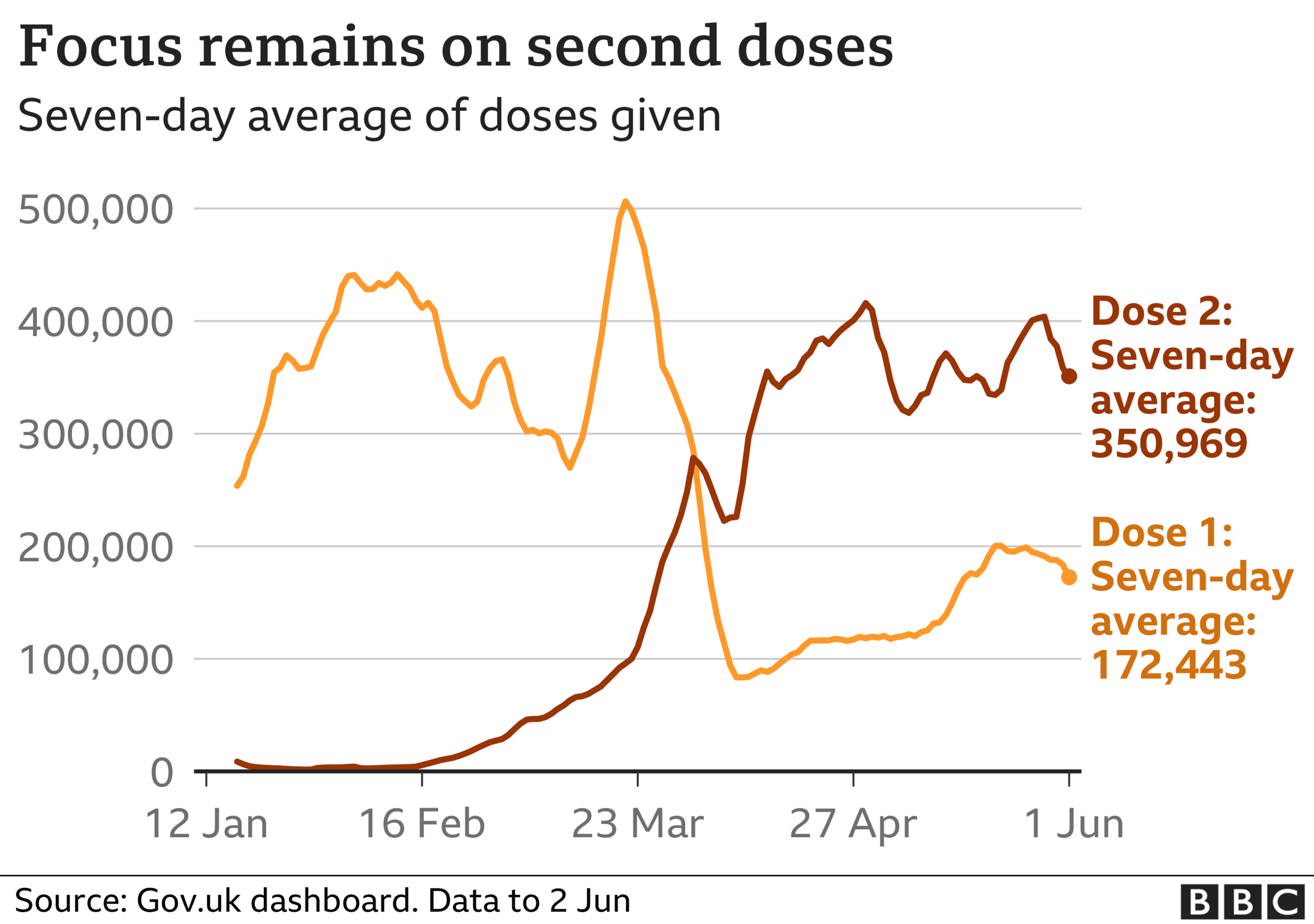
Meanwhile, Portugal is set to be downgraded from UK's green travel list to amber, meaning that people can only travel there for essential reasons.
Seven countries and territories will be added to the red list facing toughest travel restrictions, including Afghanistan, Bahrain, Costa Rica, Egypt, Sri Lanka, Sudan and Trinidad and Tobago.

THE MEANING BEHIND EMOJIS: The validation that comes with cultural recognition
LOVE IN LOCKDOWN: Stephen Fry narrates a new musical romance

Related topics
- Published4 March 2022
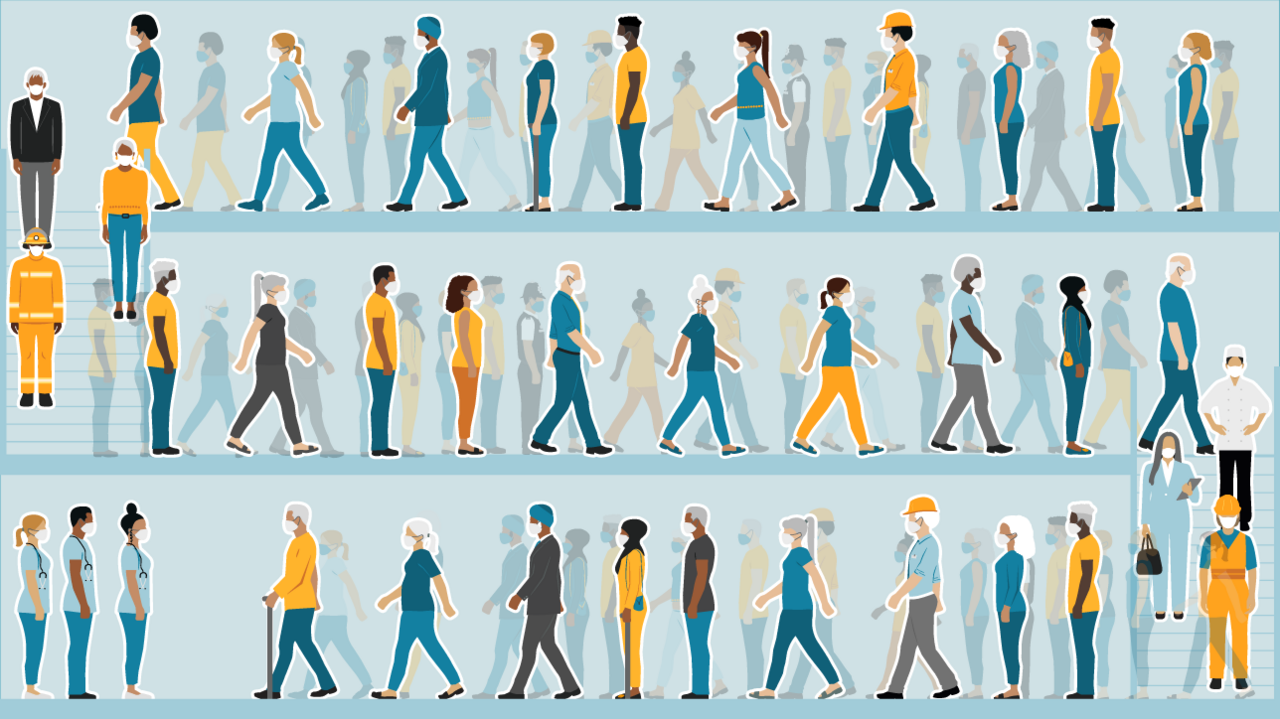
- Published17 November 2021
